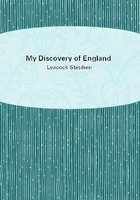
第23章 THE SHADOW AND THE FLASH(3)
I visited Lloyd's laboratory a number of times after that, and found him always deep in his search after the absolute black. His experiments covered all sorts Of pigments, such as lamp-blacks, tars, carbonized vegetable matters, soots of oils and fats, and the various carbonized animal substances.
"White light is composed of the seven primary colors," he argued to me. "But it is itself, of itself, invisible. Only by being reflected from objects do it and the objects become visible. But only that portion of it that is reflected becomes visible. For instance, here is a blue tobacco-box. The white light strikes against it, and, with one exception, all its component colors--violet, indigo, green, yellow, orange, and red--are absorbed. The one exception is BLUE. It is not absorbed, but reflected.Therefore the tobacco-box gives us a sensation of blueness. We do not see the other colors because they are absorbed. We see only the blue. For the same reason grass is GREEN. The green waves of white light are thrown upon our eyes.""When we paint our houses, we do not apply color to them," he said at another time. "What we do is to apply certain substances that have the property of absorbing from white light all the colors except those that we would have our houses appear. When a substance reflects all the colors to the eye, it seems to us white. When it absorbs all the colors, it is black. But, as I said before, we have as yet no perfect black. All the colors are not absorbed. The perfect black, guarding against high lights, will be utterly and absolutely invisible. Look at that, for example."He pointed to the palette lying on his work-table. Different shades of black pigments were brushed on it. One, in particular, I could hardly see. It gave my eyes a blurring sensation, and I rubbed them and looked again.
"That," he said impressively, "is the blackest black you or any mortal man ever looked upon. But just you wait, and I'll have a black so black that no mortal man will be able to look upon it--and see it!"On the other hand, I used to find Paul Tichlorne plunged as deeply into the study of light polarization, diffraction, and interference, single and double refraction, and all manner of strange organic compounds.
"Transparency: a state or quality of body which permits all rays of light to pass through," he defined for me. "That is what I am seeking. Lloyd blunders up against the shadow with his perfect opaqueness. But I escape it. Atransparent body casts no shadow; neither does it reflect light-waves--that is, the perfectly transparent does not. So, avoiding high lights, not only will such a body cast no shadow, but, since it reflects no light, it will also be invisible."We were standing by the window at another time. Paul was engaged in polishing a number of lenses, which were ranged along the sill. Suddenly, after a pause in the conversation, he said, "Oh! I've dropped a lens. Stick your head out, old man, and see where it went to."Out I started to thrust my head, but a sharp blow on the forehead caused me to recoil. I rubbed my bruised brow and gazed with reproachful inquiry at Paul, who was laughing in gleeful, boyish fashion.
"Well?" he said.
"Well?" I echoed.
"Why don't you investigate?" he demanded. And investigate I did. Before thrusting out my head, my senses, automatically active, had told me there was nothing there, that nothing intervened between me and out-of-doors, that the aperture of the window opening was utterly empty. I stretched forth my hand and felt a hard object, smooth and cool and flat, which my touch, out of its experience, told me to be glass. I looked again, but could see positively nothing.
"White quartzose sand," Paul rattled off, "sodic carbonate, slaked lime, cutlet, manganese peroxide--there you have it, the finest French plate glass, made by the great St. Gobain Company, who made the finest plate glass in the world, and this is the finest piece they ever made. It cost a king's ransom.
But look at it I You can't see it. You don't know it's there till you run your head against it.
"Eh, old boy! That's merely an object-lesson--certain elements, in themselves opaque, yet so compounded as to give a resultant body which is transparent.
But that is a matter of inorganic chemistry, you say. Very true. But I dare to assert, standing here on my two feet, that in the organic I can duplicate whatever occurs in the inorganic.
"Here!" He held a test-tube between me and the light, and I noted the cloudy or muddy liquid it contained. He emptied the contents of another test-tube into it, and almost instantly it became clear and sparkling.
"Or here!" With quick, nervous movements among his array of test-tubes, he turned a white solution to a wine color, and a light yellow solution to a dark brown. He dropped a piece of litmus paper into an acid, when it changed instantly to red, and on floating it in an alkali it turned as quickly to blue.